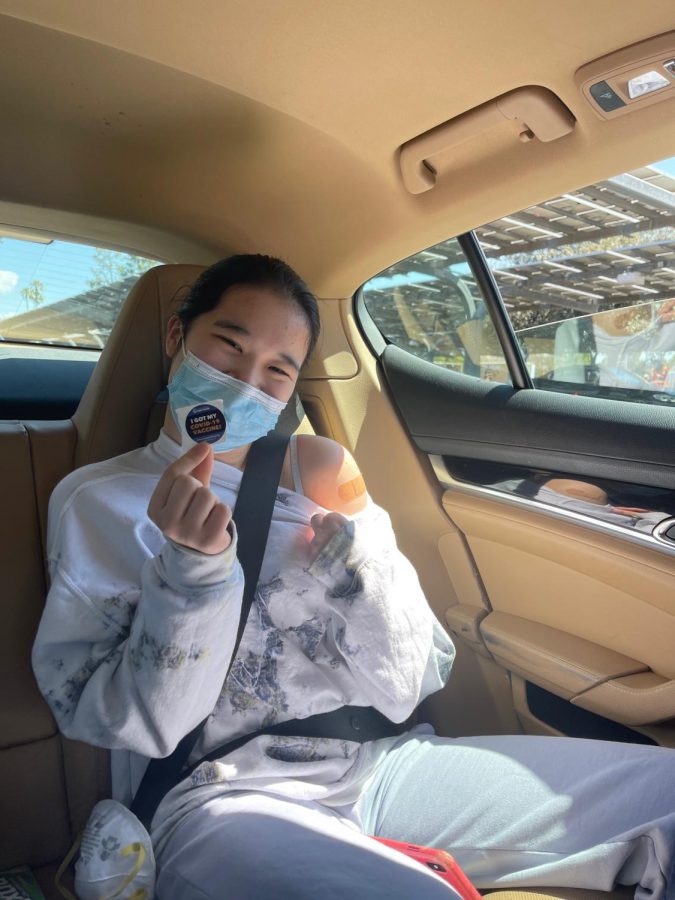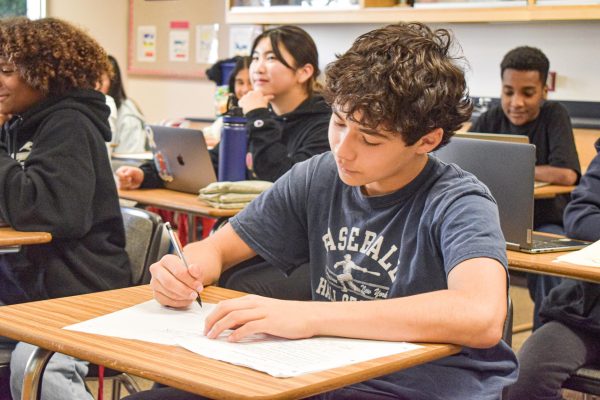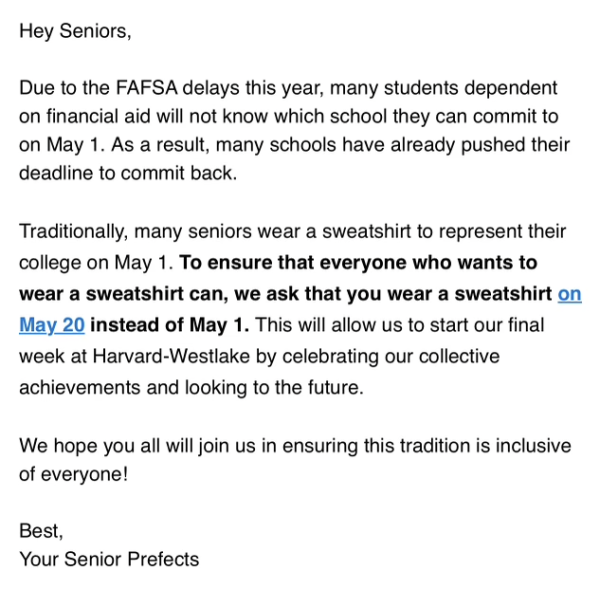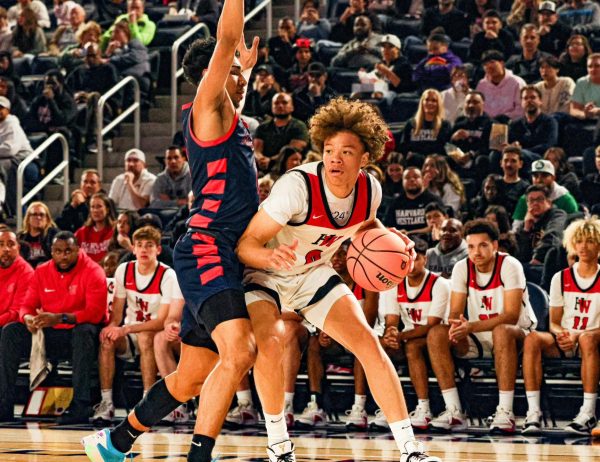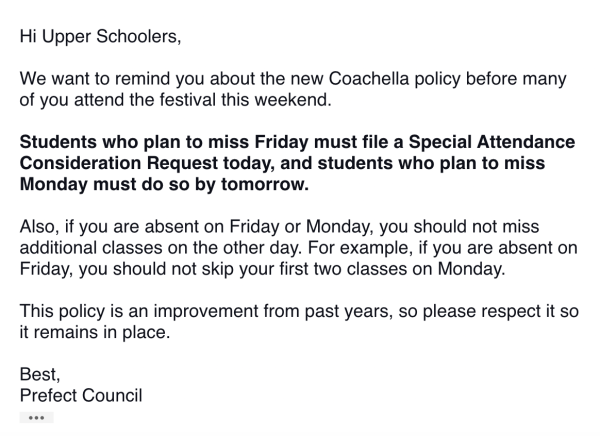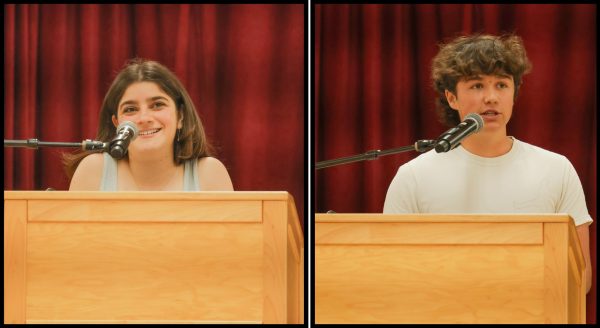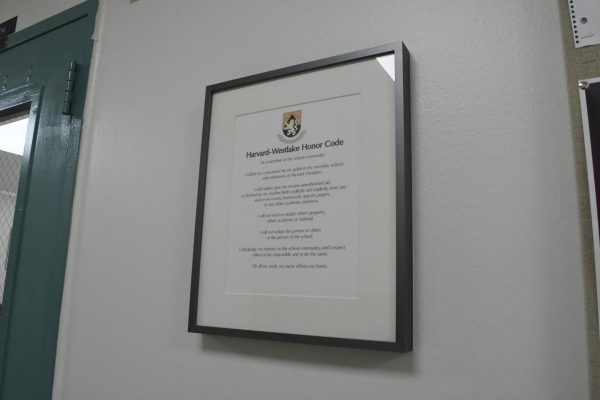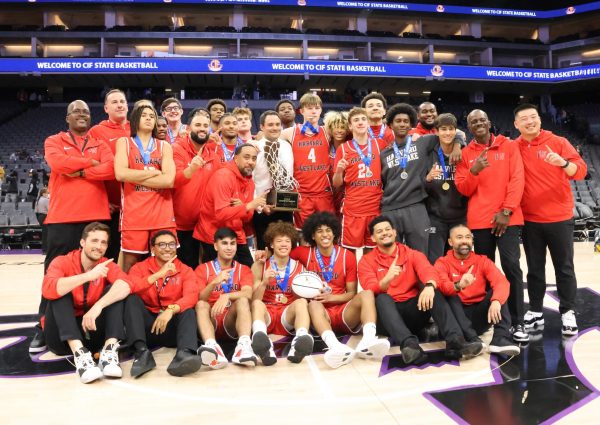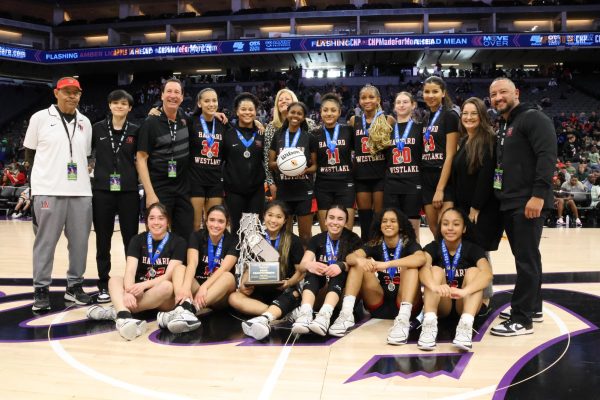Full vaccination required by administration for school year
Printed with permission of Donna Yang
Konnie Duan ’23 shows her sticker after receiving the COVID-19 vaccine at a drive-through clinic.
September 5, 2021
The school required all students and employees returning to campus to submit proof of full vaccination against COVID-19 online by Aug. 13, which President Rick Commons announced in an all-school email sent July 30.
The school released a packet on its website detailing the conditions that would lead to potential exemptions from vaccination, which can be discussed with the Community Health Office.
According to the packet, the school will only consider exemptions for documented medical reasons, sincerely held religious beliefs, age-related vaccine eligibility issues and vaccinations in process.
Head of Upper School Beth Slattery said that while the school initially planned not to require vaccination amid declining cases in the spring, rising numbers due to the highly transmissible delta variant prompted the administration to reconsider their policy.
“We asked people to voluntarily submit their vaccination status and found that a very large majority of our students, faculty and staff had already been vaccinated, but there were still a number of parents, students, faculty and staff who were expressing the sentiment that a vaccine requirement would make them feel much more comfortable returning to school,” Slattery said.
With students, faculty and staff now fully vaccinated, Slattery said the school has adjusted several COVID-19 prevention measures from last year.
“At this point, we plan to do regular testing on anyone with a medical exemption and for students playing contact or indoor sports,” Slattery said. “We may have to do regular testing for vaccinated individuals, but that is not the plan at this moment. We do not plan to use the Trace app or the health screening app at this point. If you come to campus, it is assumed that you have not tested positive [for COVID-19] and are not experiencing symptoms.”
Joie Zhang ’22 said she will feel more comfortable on campus knowing that her peers and teachers are fully vaccinated.
“In addition to the required negative COVID-19 test and mask mandate, the vaccine mandate definitely makes me feel a lot safer returning to campus because the chances for breakthrough cases to occur would be lower,” Zhang said.
Echoing Zhang’s sentiment, Lila Daoudi ’24 said the vaccine requirement will make her in-person classes and activities more enjoyable.
“I have a lot of high-risk people in my life, so it is important to know that I will not be endangering them by wanting to get the best possible education,” Daoudi said. “It also makes my extracurriculars a lot easier and more functional when everyone is fully vaccinated.”
Amid the surge in COVID-19 infections caused by the delta variant, Zhang said she will remain flexible in terms of potential changes to the school’s health policies.
“If this fourth wave gets more serious, I would completely understand if the school administration decided to implement more social distancing measures or return to hybrid schooling,” Zhang said. “Though I am looking forward to having an in-person senior year and getting to trek across our campus again, I know that our health is definitely the highest priority.”
Alex Lee ’24 said despite the vaccine’s ability to limit the spread and severity of COVID-19 cases, he is concerned that the emergence of new COVID-19 variants will prevent campuses from operating at fully capacity for the entire school year.
“While I hope the Greek alphabet is able to limit the number of variants, it is an inevitability that current and future ones will disrupt the academic year,” Lee said. “Low national vaccination levels only compound that problem. [The vaccine] is a first step. If we do not all take it, we cannot course-correct for the second.”
CC Mesa ’22 said she thinks the school’s vaccine mandate is an important step toward reducing
COVID-19 case numbers. Mesa worked at a vaccine clinic over the summer and said boosting vaccination rates is the most effective way to lower rates of infection.
“At the clinic I worked at, you did not have to sign up to be vaccinated, and vaccines were completely free,” Mesa said. “A lot of the people I registered [to get their vaccines] were not even American citizens. They would give me green cards or other countries’ passports as [identification, and they were able to get the vaccine just as everyone else was. Having such accessibility makes sure that everyone can be protected. Helping anyone and everyone get the vaccine is so important to ending the pandemic and making people feel safer.”































